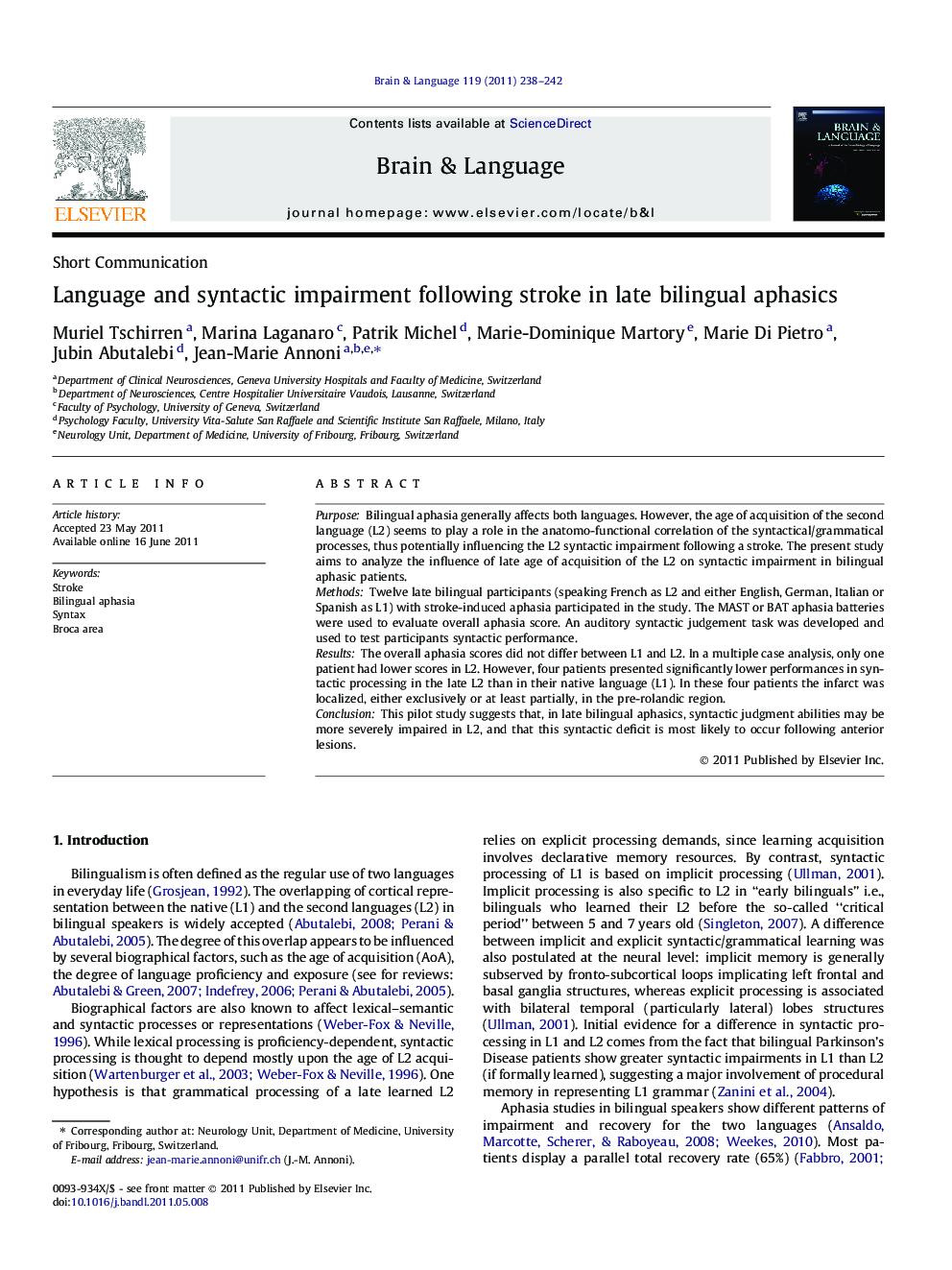| Article ID | Journal | Published Year | Pages | File Type |
|---|---|---|---|---|
| 925492 | Brain and Language | 2011 | 5 Pages |
PurposeBilingual aphasia generally affects both languages. However, the age of acquisition of the second language (L2) seems to play a role in the anatomo-functional correlation of the syntactical/grammatical processes, thus potentially influencing the L2 syntactic impairment following a stroke. The present study aims to analyze the influence of late age of acquisition of the L2 on syntactic impairment in bilingual aphasic patients.MethodsTwelve late bilingual participants (speaking French as L2 and either English, German, Italian or Spanish as L1) with stroke-induced aphasia participated in the study. The MAST or BAT aphasia batteries were used to evaluate overall aphasia score. An auditory syntactic judgement task was developed and used to test participants syntactic performance.ResultsThe overall aphasia scores did not differ between L1 and L2. In a multiple case analysis, only one patient had lower scores in L2. However, four patients presented significantly lower performances in syntactic processing in the late L2 than in their native language (L1). In these four patients the infarct was localized, either exclusively or at least partially, in the pre-rolandic region.ConclusionThis pilot study suggests that, in late bilingual aphasics, syntactic judgment abilities may be more severely impaired in L2, and that this syntactic deficit is most likely to occur following anterior lesions.
► Stroke-induced aphasia in late bilingual mostly affects both languages. ► We examined Stroke-induced syntactic impairment in late bilingual aphasia. ► Our data suggest that syntactical impairments may more severely affect late L2. ► L2 severe syntactical impairment is most likely to occur after anterior lesions. ► Anterior lesions are also associated with less impaired L1 syntax.
